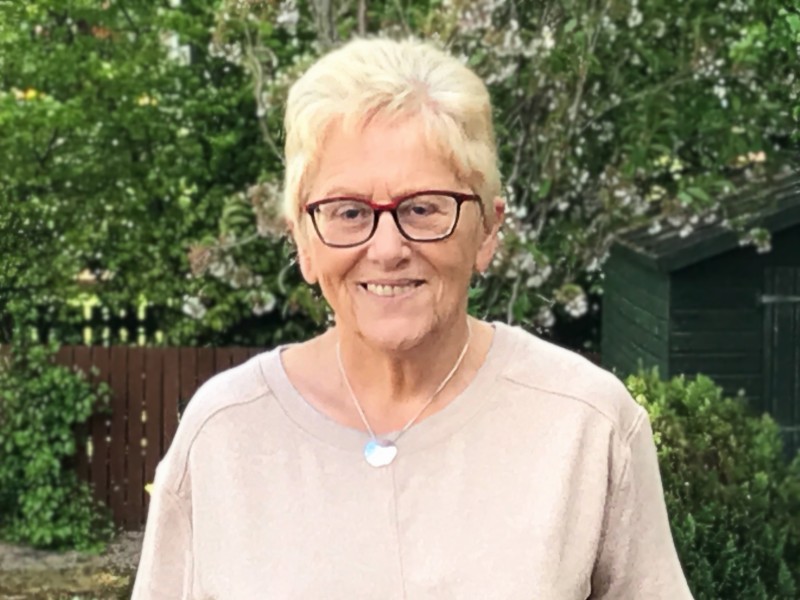A stark reminder of the importance Community Solutions plays in improving the lives of people across North Lanarkshire was made clear yesterday (Tuesday, 17 November).
The council’s Adult Health and Social care Committee was updated on the work carried out to improve people’s quality of life and wellbeing through Community Solutions.
A partnership between Health & Social Care North Lanarkshire (HSCNL), Voluntary Action North Lanarkshire (VANL) and the local community and voluntary sector, Community Solutions is a community-led programme focused on building communities where people can lead full, independent lives.
The Community Solutions annual report for 2019/20 has revealed a number of key outcomes for people in North Lanarkshire.
These include:
- 10,685 people experiencing a reduction in isolation and loneliness
- 10,778 people reporting they had improved independence and wellbeing
- 10,116 people feeling they had greater access to health and wellbeing supports and services
- 12,405 people said they felt included, connected and safe
By tackling isolation and loneliness, befriending services are ensuring that lives are being positively changed. Two service users reported:
- “It’s been nice for me to be able to spend some time with her (volunteer). I go to college during the week and usually look after my dad at weekends, so to go a walk or grab a coffee and tell someone about how things are going really takes my mind off things.” (Young carer)
- My befriender and I have already been out for a walk and we have more things planned. My days don’t seem quite so long now. Thank you.” (Care of the Elderly participant)
Outcomes for children and families showed that 2,295 people reported an increased sense of wellbeing; 2,203 people felt their mental health is optimised; and 2,344 people reported increased physical activity.
The experiences of carers was also captured with 2,168 reporting their health and wellbeing are optimised and 1,934 feeling that they have an increased ability to manage or cope with their caring role. A further 1,032 were referred to direct carer support services while almost 1,700 accessed a short break from caring.
Dr Avril Osborne, chair of North Lanarkshire Integration Joint Board, said: “This annual report gives us an important opportunity to reflect on the progress we have made.
“It gives us a clear understanding of the range of programmes which support the Prevention, Early Intervention, Community Capacity Building and Wellbeing agendas across the Health and Social Care North Lanarkshire.
“It’s also important to recognise not only the significant work developed and delivered during 2019/20, but also how programmes were adapted in response to the COVID-19 pandemic. Recovery plans will incorporate learning from the pandemic response and ensure work prioritises tackling inequalities to support those who need it the most.
“It is widely recognised that prevention is a key component of managing future demand in terms of health and social care. The health and wellbeing of our residents can be negatively impacted by issues such as lack of physical activity, poor nutrition, poverty and inequality. Evidence about the negative impacts on physical and mental health of isolation and loneliness has also been increasing.
“My thanks go to all the people, staff and volunteers, who have made such a positive contribution to the lives of so many of our residents. The work they are doing – in exceptional circumstances due to the pandemic – is vital in tackling problems at the root and equipping people to lead better, more independent lives.”
Councillor Paul Kelly, vice-chair of North Lanarkshire Integration Joint Board, said, added: “Today’s report contains a number of positive outcome for the people of North Lanarkshire and staff and our robust community and voluntary sectors deserve enormous credit for their efforts.
“Through the overarching aims of preventing isolation and loneliness and addressing inequalities; reconnecting people with their communities; and by looking at innovative approaches which support people to be more active and to have a better diet, we can significantly improve the health and wellbeing of our residents.
“This approach builds more inclusive, cohesive and resilient communities thereby reducing future reliance on statutory agencies and services.
“It’s important to recognise the hard work that goes in to developing strong community bonds. Staff and our community and voluntary sectors are always looking for new and improved ways of working going forward. These are designed to meet the needs of service users while also keeping them and our staff closely linked and working towards a common goal.”

